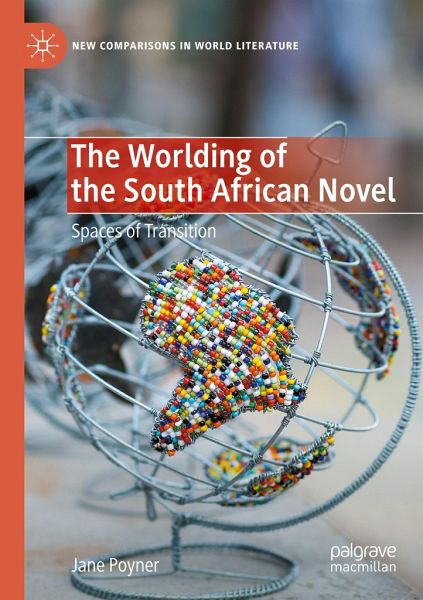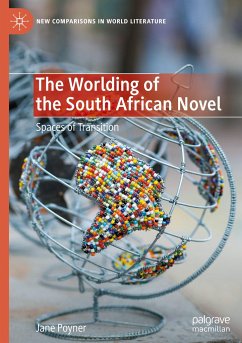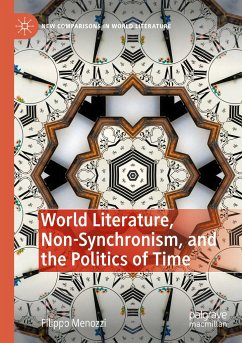
The Worlding of the South African Novel
Spaces of Transition
Versandkostenfrei!
Versandfertig in 6-10 Tagen
38,99 €
inkl. MwSt.
Weitere Ausgaben:

PAYBACK Punkte
19 °P sammeln!
The Worlding of the South African Novel develops from something of a paradox: that despite momentous political transition from apartheid to democracy, little in South Africa's socio-economic reality has actually changed. Poyner discusses how the contemporary South African novel engages with this reality. In forms of literary experiment, the novels open up intellectual spaces shaping or contesting the idea of the "new South Africa". The mediatising of truth at the TRC hearings, how best to deal with a spectacular yet covert past, the shaping for "unimagined communities" of an inclusive public s...
The Worlding of the South African Novel develops from something of a paradox: that despite momentous political transition from apartheid to democracy, little in South Africa's socio-economic reality has actually changed. Poyner discusses how the contemporary South African novel engages with this reality. In forms of literary experiment, the novels open up intellectual spaces shaping or contesting the idea of the "new South Africa". The mediatising of truth at the TRC hearings, how best to deal with a spectacular yet covert past, the shaping for "unimagined communities" of an inclusive public sphere, HIV/AIDS as the preeminent site testing capitalist modernity, white anxieties about land reform, disease as environmental injustice and the fostering of an enabling restorative cultural memory: Poyner argues that through these key nodes of intellectual thought, the novels speak to recent debates on world-literature to register the "shock" of an uneven modernity produced bya capitalist world economy.












